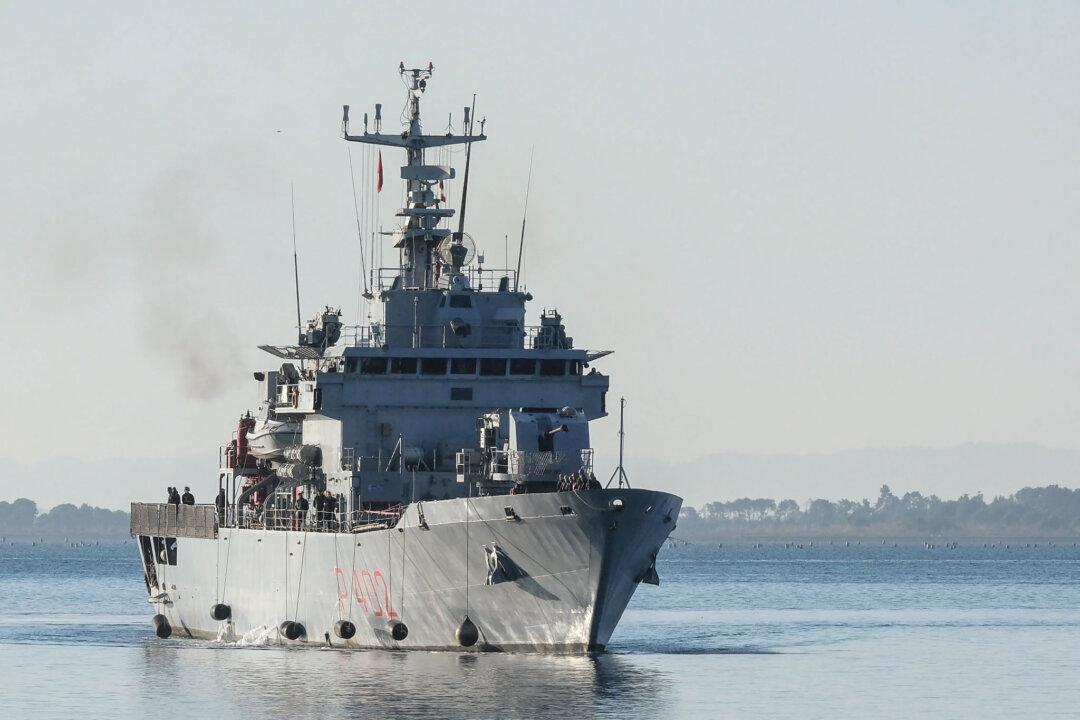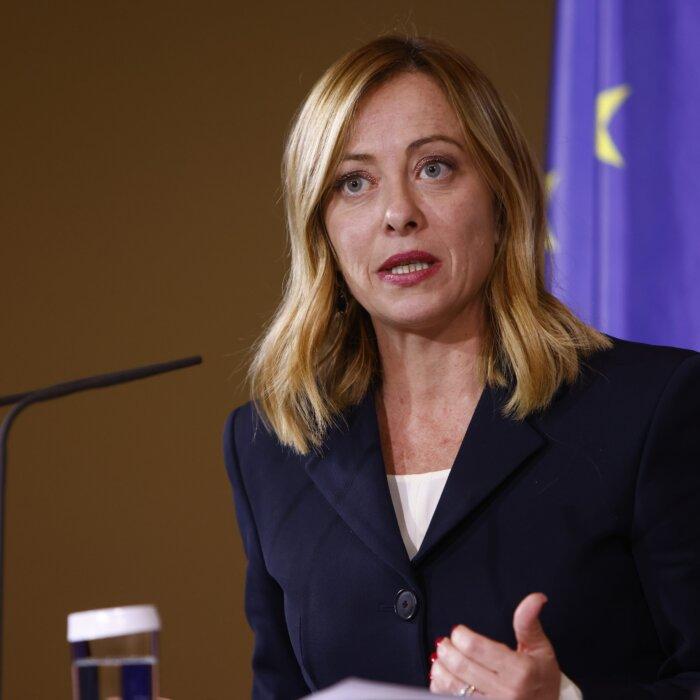Italy’s groundbreaking Albania asylum seeker scheme hit another bump in the legal road on Monday after a court in Rome asked EU judges to weigh in on the detention of boat migrants in the Balkan nation.
The move has once again thrown a spanner in the works of Prime Minister Giorgia Meloni’s plans to deter illegal arrivals by holding migrants in a separate “third country.”
Rome built migrant camps in Albania to hold some of the arrivals from North Africa while their asylum applications were processed, rather than allowing them to stay on Italian soil.
Last week, a group from Egypt and Bangladesh was taken across the Adriatic for processing after being picked up at sea.
There were initially eight people, but one was later transferred to Italy for health reasons.
On Monday, however, the Roman court said it was referring the matter to EU judges, releasing a statement that this course of action had been chosen “as the most suitable instrument to clarify various elements of doubtful compatibility with supranational (EU) law.”
This decision means the seven remaining migrants will vacate the detention center and be transferred to Italy.
Deputy Prime Minister Matteo Salvini, who’s the leader of the anti-illegal-immigrant League party, called the court’s move “another political ruling not against the government, but against Italians and their security.”
This is the second time that courts have scuppered Meloni’s migrant plans.
In October, judges ruled that the first boatload of asylum seekers detained in Albania had to be returned to Italy due to concerns over their legal status after a European Union Court of Justice (ECJ) judgment.
The migrants in line to be deported to Albania are supposed to be all males coming from a list of countries that Italy has classified as safe, meaning their asylum applications have little chance of approval and can therefore be swiftly repatriated to their countries of origin.
However, the ECJ ruled in October that a country outside the EU cannot be declared “safe” unless its entire territory is deemed free of danger, which the court in Rome then decided meant that Bangladesh and Egypt could not be considered “safe.”
At the time, Meloni criticized the ruling, saying that suggesting that countries such as Egypt and Bangladesh are unsafe makes virtually all migrants ineligible for the Albania program.
This prompted the Italian cabinet to upgrade the legal status of the list of safe countries to an act of law rather than simply a ministerial decree, which has less legal standing, to make it harder for courts to challenge its validity.
The end result of this legal wrangling so far means that there have been zero migrants successfully sent to the centers for processing, despite much fanfare for the scheme both in Italy and abroad.
Rome’s program is the first of its kind operated by an EU nation, which sees asylum seekers diverted to a separate country while their claims are processed.
Migration has become a wedge issue across the continent of Europe, prompting many nations to introduce stricter controls and tougher policies, with Italy’s fledgling Albanian solution the most high-profile and revolutionary scheme currently underway.
Last month, Meloni called the Albania scheme an example for the rest of Europe, and Italian Interior Minister Matteo Piantedosi said 15 other countries on the continent have taken an interest in the operation.
Under the five-year, 670 million euro ($730 million) agreement between Rome and Tirana, up to 3,000 migrants intercepted by the Italian coast guard in international waters each month can be held in Albania, where they will be vetted for asylum in Italy or sent back to their countries of origin.
Italy has agreed to take those migrants granted asylum, but any whose applications fail will be deported directly from Albania.
A maximum of 36,000 can be dispatched each year, so long as they have come from the list of countries classified as “safe.”







